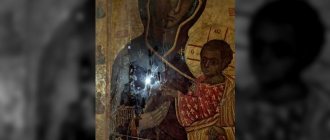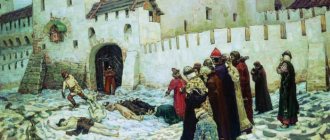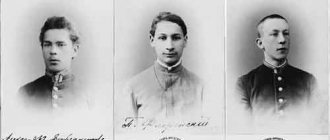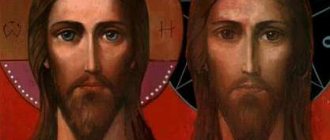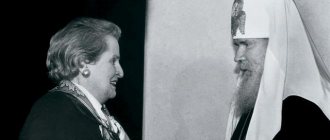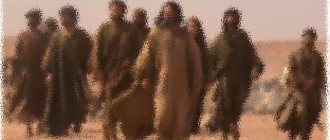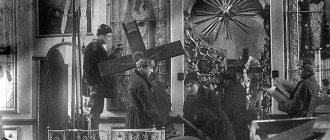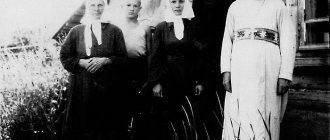Ivan Sergeevich Shmelev is a Russian writer, publicist, and Orthodox philosopher. The novels “Summer of the Lord” and “Sun of the Dead” made him recognizable not only in Russia, but also abroad.
Twice nominated for the Nobel Prize, but never received it, the writer survived many trials: the death of his beloved father, the murder of his son, confrontation with the Soviet regime and forced emigration. But he bequeathed to bury himself where he was born - he loved his homeland so deeply.
Shmelev's childhood
Ivan Shmelev was born into a wealthy family, but his childhood was overshadowed by the sudden death of his father and a cold relationship with his mother. The early years of his life played an important role in the development of the future writer and largely determined his worldview.
Origin and birth
Ivan Shmelev was born on September 21 (October 3), 1873 in the Kadashevskaya settlement of Zamoskvorechye into a family of merchants. Family members adhered to the Old Believers and tried to observe high spiritual principles.
Writer's family
Ivan Shmelev was born into an ordinary family:
- My grandfather was a peasant from the province of Moscow province, he loved French novels and historical works.
- Father, Sergei Ivanovich, owner of an artel of carpenters, several baths, and swimming pools.
- Mother, Evlampia Savinova, the daughter of a merchant, instilled in her son a love of Russian literature. With her help, the boy received his primary education.
The future writer only developed a warm relationship with his father. Mom was strict and cold with the children, spanking them for their offenses. The boy spent a lot of time with the workers of the artel and his devout teacher, former carpenter Mikhail Pankratovich Gorkin. It is believed that it was communication with simple masters that influenced the writer’s worldview.
His beloved father died tragically in a fall from a horse when Ivan was only 7 years old. The mother was left alone with six children. The family lived on income from bathhouses and renting out part of the house.
Education
When the boy was 10 years old, he entered the gymnasium. Studying was difficult for the child due to strict rules and conflicts with teachers. I had to change my place of study. In 1894, Ivan Shmelev graduated from the 6th Moscow Gymnasium. Already during this period he tried to write short essays and sketches. For his creativity he received A's with pluses from his teacher Fyodor Tsvetaev, Marina Tsvetaeva's uncle. The teenager was greatly impressed by Pushkin’s work.
Ivan also loved to read works:
- L.N. Tolstoy;
- N.V. Gogol;
- I.S. Turgenev;
- N.S. Leskova;
- V.G. Korolenko.
Teenage years and early life
In his youth, Shmelev temporarily abandoned literary creativity and faith due to his passion for philosophy and forced service as an inspector. He needed his wife's support and self-confidence to return to the writing path.
Marriage
In 1891, the writer met Olga Alexandrovna Okhterloni, the daughter of the hero of the defense of Sevastopol. She was a serious, educated and pious girl. Three years later they got married and lived together for 41 years. The honeymoon was spent on the holy island of Valaam, to which the writer’s first book was dedicated. Ivan was grateful to his wife, who with her deep faith returned him to Orthodoxy.
Student times
Shmelev received his education at Moscow University. In 1898 he graduated from the Faculty of Law. Many future Russian intellectuals studied here. Communication with smart, creative people helped in developing the writer’s talent and enriched his spiritual world. Like many young people, he became interested in the philosophy of positivism. This circumstance temporarily alienated him from religion.
Working as a tax inspector
After the first book, “On the Rocks of Valaam,” was received coldly, Shmelev decided to change his field of activity. It was necessary to provide for his wife and son, Sergei, who was born in 1896. The writer moves to Vladimir-on-Klyazma and begins to serve as a tax inspector.
"Heavenly Paths"
Shmelev Ivan Sergeevich, whose works we are describing, began to work on his next novel called “Heavenly Paths” and practically finished it. However, at this time Olga, his beloved wife, passed away after illness. This happened in 1933. Shmelev Ivan Sergeevich could not imagine his existence without this woman. The writer had to go through a lot after her death. He was about to continue his romance, but his life was stopped by a sudden heart attack.
Ivan Sergeevich Shmelev died on June 24, 1950.
Mature age
The revolution and civil war did not bypass the family of I.S. Shmeleva.
The writer had to go through a lot:
- death of a son;
- forced emigration;
- poverty;
- wife's death.
Experience and write about your own and hundreds of other ruined lives in works.
Loss of a son
The writer, like many of his contemporaries, accepted the events of February 1917 with delight. But when he saw how the revolution was destroying not only the political system, but also morality, he became disillusioned with it. After the October events, the family left for Crimea.
Sergei Shmelev, his beloved son, was mobilized into the tsarist army in 1915. Sick with tuberculosis after being gassed, he was forced to remain in Crimea while the Whites were retreating. Believing in the amnesty that the Reds announced, he confessed to them. Sergei was arrested.
Ivan Shmelev sent letters with pleas for help to Gorky, Veresaev, Lunacharsky, but his only son was shot. The heartbroken father wanted to know: “For what crime? Only for being called a second lieutenant!” They didn’t even give Sergei’s body to his parents.
Years of emigration
In 1922, the writer and his wife left Russia. At Bunin’s invitation, they moved to Berlin, and then to Paris. There they lived the rest of their lives.
Abroad, Shmelev was published in many Russian-language magazines:
- "Last news";
- "Today";
- "Russian Thought".
last years of life
Shmelev experienced great financial difficulties in his old age: there was not enough money for food, clothing, heating. A severe stomach ulcer darkened life even more. His beloved wife died of a heart attack in 1936. For the same reason, the writer died in 1950. He was buried in Paris at the Sainte-Genevieve-des-Bois cemetery. In 2000, the remains of the writer and his wife were buried in their native Moscow, as Shmelev bequeathed.
Used materials
- Cross of Ivan Shmelev
- Meeting. Konstantin Balmont and Ivan Shmelev
- Marina Udaltsova. Cover us from all evil with your honest omophorion!
[1] BAR. Ms Coll Zeeler. Corr. Box 3. Vladimir Feofilovich Seeler (1874–1954) - public figure, journalist, critic; lawyer. In 1919–1920 - Minister of Internal Affairs in the Denikin government. General Secretary of the Parisian Union of Russian Writers and Journalists. Since 1947 - member of the editorial board of gas. "Russian Thought".
[2] Russian newspaper in Paris. 1924. No. 6. February 11. P.2-3.
[3] Ilyin I.A. Collection. op. // Ivan Ilyin, Ivan Shmelev. Correspondence between two Ivans (1927–1934). M., 2000. P.65-66.
The writer's creative path
In the early period of creativity, many stories and novellas were written in which the theme of the little man predominated. In the 20-30s, Shmelev created the most famous novels - “The Summer of the Lord” and “The Sun of the Dead”. In the works of the late period, longing for the homeland and the desire for loneliness are acutely felt.
Debut story “At the Mill”
Shmelev wrote his first story under the impression of one event. One day, during a summer fishing vacation, he came to a pool near a mill, where he met a deaf old man who lived there. The surrounding landscape enchanted him and reminded him of paintings from Pushkin’s poems.
The story tells of a miller and his wife who took over the master's mill by deception. However, it did not add happiness to them. By chance or deliberately, the heroes die in the river. The story was published in 1895 in the Russian Review magazine.
Author's disappointment
The first book “On the rocks of Valaam. Beyond the world. Travel Stories" was written after a honeymoon trip to the holy island. Due to strict censorship, many key moments were cut out, as a result of which the work lost its meaning and originality. Readers did not appreciate the revised version, and the writer experienced deep disappointment and moved away from literature for a while.
Return to creativity
Daily communication with representatives of the common people in the position of inspector was reflected in the writer’s works. Collaboration with magazines and creation of works for children helped Ivan Shmelev to believe in his talent again. In 1907 he resigned and finally devoted himself entirely to literature.
This video provides information about the writer's life in Vladimir.
"Revolution of Life"
Shmelev and his wife moved to the Kaluga estate after the outbreak of World War I. At this time he made a new discovery for himself. It turns out that war not only disfigures a person physically, but also morally. The hero of Shmelev’s new story “The Turn of Life” is a carpenter. During the war years, his business improved significantly due to orders for crosses and coffins. At first, the influx of money consoled the master, but over time he realized that money earned from people’s grief did not bring happiness.
Shmelev's works
The author's pre-revolutionary work is distinguished by faith in the happy future of the people. The writer expected bright changes in Russian society. Fascinated by philosophy, Shmelev develops the ideas of Tolstoyism, socialism, and Darwinism.
The revolution radically changed the author's worldview. Therefore, the works of the 20-30s overthrow all Enlightenment theories. There are notes of accusation against the intelligentsia, which stirred up the people and took God away from the people. The writer’s pain for the destroyed homeland and the broken lives of people is felt.
Chronological table of major works
| Year | Work |
| 1897 | On the rocks of Valaam |
| 1906 | Decay |
| 1907 | Ivan Kuzmich |
| 1911 | Restaurant Man |
| 1913 | Wolf's Roll |
| 1918 | Inexhaustible Chalice |
| 1923 | Sun of the dead |
| 1933 | Summer of the Lord |
| 1935 | Pilgrimage |
Stories
Ivan Shmelev, like many classics, addresses the theme of the “little man” in his stories. In addition, the author talks about the vices of modern society and reveals to the reader the psychology of the hero.
Famous stories:
- "The Man from the Restaurant" The story is about the waiter Yakov Skorokhodov, who is forced to endure rudeness, rudeness and humiliation from rich guests. The work, built on contrast, deeply reveals the peculiarities of the psychology of a common Man.
- "Pilgrimage". An autobiographical light work, a kind of encyclopedia of Russian life, written in rich folk language. The author used many archaisms and historicisms in the book, thereby preserving them for future generations.
- "A fearful silence." The heroes - a stingy gentleman and his frivolous son personify the process of decomposition of the nobility. Mired in everyday life, thirsting for profit, they do not notice the beauty of the world around them. In this the author sees a real human tragedy.
Stories
The main themes of the stories by I.S. Shmelev are the revolution and the life of ordinary Russian people.
Stories and their themes:
- "Sergeant" Main theme: the difficult, unfair life of the “little man”; the hero longs for change.
- "Russian song". The story is told from the perspective of a boy who talks about a painter who performed Russian songs. They were gentle, sincere and helped the child fall in love with the broad Russian soul and the Russian Word.
- "Ivan Kuzmich." The merchant Gromov treats the protests of the people with distrust and considers revolutionaries to be enemies of the country. But, accidentally finding himself in a crowd of demonstrators, he understands the motives of their actions and experiences a mental turning point.
Shooting of son
Shmelev's son Sergei was an officer in the tsarist army, so when the Bolsheviks occupied Crimea, they arrested him.
Despite Shmelev's petitions, he was never able to free his son, who was soon shot. This loss became one of the most difficult in his biography.
The writer was in a difficult mental state for a long time and could not come to terms with the death of his 25-year-old son.
Ivan Shmelev with his wife and son
Novels
The pinnacle of Shmelev's creativity are novels: in them the author raises deep philosophical problems.
Popular Novels:
- "Summer of the Lord". An autobiographical novel about work and life, the festivities of peasants and merchants of the late 19th century. The story is told from the perspective of a child, which is why the novel turned out to be light and warm.
- "Sun of the Dead". A book about the revolution, the Civil War and the terror that gripped the country. “Read this if you have the courage,” said Thomas Mann. The author shows the fine line between faith and unbelief, life and death.
Revolution
Shmelev greeted the February Revolution of 1917 with jubilation. He thought political change would make people's lives better.
However, after confusion and outright violence began in the country, Ivan Shmelev changed his mind.
Moreover, even then it became clear to him that in the near future the Russian people would have to endure many troubles and misfortunes.
After this, Shmelev moves to Crimea, where he writes the story “How It Was.” In it, he shares with readers the events taking place during the Civil War of 1918-1922.
Interesting facts from the life of Ivan Sergeevich Shmelev
Interesting facts from the life of the writer:
- “The Roman Orator” was what Shmelev’s classmates called him for his eloquence and passion for writing.
- Unlike many of his contemporaries, the writer was attracted to monastic life.
- Elder Barnabas of Gethsemane blessed him to write.
- In 1993, a house-museum dedicated to the writer was opened in Alushta.
- Shmelev's dream of returning to his homeland did not come true during his lifetime. Only 50 years later his remains were brought to Russia and buried in the Donskoy Monastery.
“Shmelev, of all Russians, is the most Russian, and also a native, born Muscovite, with a Moscow dialect, with Moscow independence and freedom of spirit,” - this is what A.I. wrote about him. Kuprin.
